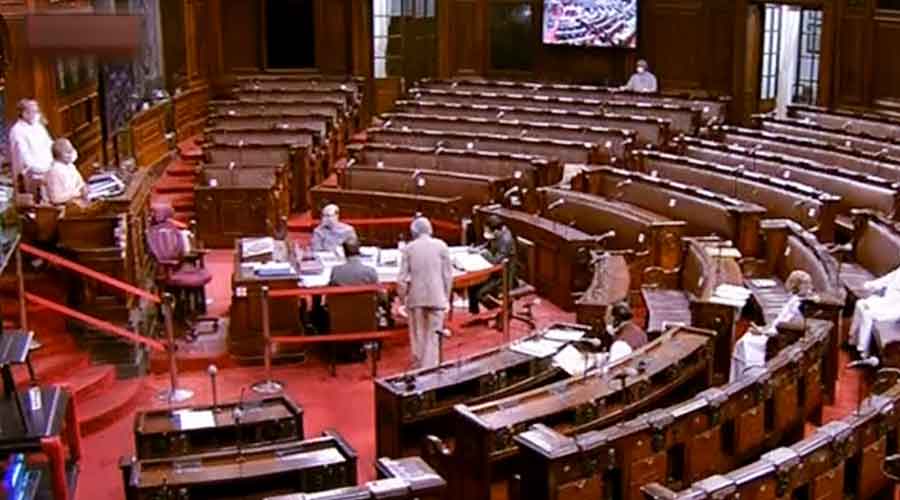Questions asked by an MP in the Rajya Sabha and circulated by the higher education regulator among the central universities have prompted over 200 academics to express concern about possible censorship of the teaching of any text the government dislikes.
A statement issued by the academics on Tuesday said the questions — about an unnamed book by an unnamed Pakistani author — sought to curtail academic freedom and portray minority institutions like Aligarh Muslim University (AMU) and the Jamia Millia Islamia in poor light.
According to the University Grants Commission (UGC) letter, sent to the universities on March 16, the MP had asked:
- Whether a book by a Pakistani author was being taught at AMU, Jamia or any other educational institution in the country
- Whether the book contained language that was derogatory to Indian citizens and whether it supported terrorism.
- Whether the government would scrutinise the content of books by the same author and act against “people responsible for the same”.
The academics have construed the last bit as a reference to punishing any teacher or university authority responsible for including a disfavoured text in the syllabus or teaching it. The UGC letter, which seeks replies from the central universities, does not name the MP or their party, the Pakistani author or the book.
The academics have said the phrasing of the questions could only be interpreted as being deliberately ambiguous. “For leaving the book unnamed allows the question to be read as suggesting that any book by any Pakistani author that might possibly be read as being ‘derogatory to Indian citizens’ and ‘supporting terrorism’ must not be taught in any Indian university; that teaching any such book will result in punitive action and perhaps criminal charges being lodged against teachers,” the statement said.
Among the signatories to the statement are historian Romila Thapar, professor emerita with JNU; Satish Deshpande, Nandini Sundar, Abha Dev Habib and Apoorvanand from Delhi University; Sukanta Chaudhuri, professor emeritus with Jadavpur University; Lakshmi Subramanian and Partha Chatterjee, honorary professors with the Centre for Studies in Social Sciences, Calcutta; JNU professor Ayesha Kidwai; Kerala Council for Historical Research director G. Arunima; history professor Mridu Rai from Presidency University; and Simona Sawhney from IIT Delhi.
Habib told The Telegraph that the pursuit of knowledge demanded the study of all kinds of material, but the questions sent to the universities appeared an effort to impose censorship on the texts to be taught. “Ultimately it will create a sense of fear among faculty members and institution leaders to avoid including any book critical of the government or regressive religious practices,” she said. “In a way, the questions circulated among the universities seek an undertaking that they would be vigilant and remove any critical literature from the syllabus.”
The letter from the UGC carries the subject line “Pakistani author’s book prescribed at educational institution in the country”, converting what was a question from an MP into an assertion. The academics’ statement said the subject line turned the MP’s question into a pretext for collecting information on, and place under suspicion, all books by Pakistani writers discussed at Indian universities. By appearing to seek action against teachers, the letter seems to assume that a teacher who assigns any reading material must be in agreement with all the arguments in the assigned text, the statement said. “It is more often the case that syllabi are made, especially in humanities and the social sciences, to expose students to varied historical and cultural perspectives,” it said.
“Our role as teachers is precisely to encourage students to discuss, question and learn about these perspectives, not to endorse or follow them uncritically.” Attempts to continually link central universities like AMU or Jamia, which have identifiably Muslim associations, with “terrorism” must be resisted, it said. The government’s reply to the MP’s questions was scheduled on Wednesday, but a holiday has now been declared on that day on account of several festivals.











